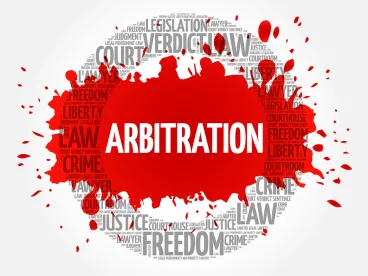Can a non-signatory to an arbitration agreement compel international arbitration under the doctrine of equitable estoppel?
Last year, in GE Energy Power Conversion France SAS v. Outokumpu Stainless USA, LLC, 140 S. Ct. 1637 (2020), the United States Supreme Court touched on this issue. The Court held that the Convention on the Recognition and Enforcement of Foreign Abitral Awards—an international treaty colloquially known as the New York Convention that governs the application and enforcement of international arbitration agreements and awards—"does not conflict with the enforcement of arbitration agreements by non-signatories under domestic-law equitable estoppel doctrines.” 140 S. Ct. at 1648. In reaching this decision, however, the Court made clear that it was not deciding whether a non-signatory can enforce an arbitration clause under the doctrine of equitable estoppel. Id.
This month, in Setty v. Shrinivas Sugandhalaya LLP, No. 18-35573, 2021 WL 281700521 (9th Cir. July 7, 2021), the United States Circuit Court for the Ninth Circuit decided that issue. It held that a non-signatory can in fact enforce an arbitration clause under the doctrine of equitable estoppel provided the claims in the case are “intertwined” with the contract containing the clause.
In Setty, two brothers signed a partnership agreement in India, agreeing to joint ownership of an Indian incense manufacturing company established by their late father. The Indian partnership agreement included an arbitration clause.
After operating the company jointly for a time, the brothers parted ways, with each starting his own incense manufacturing company. Both companies used the same incense trademark used by their father's company.
One brother and his company subsequently sued the other brother's company (but not the brother), accusing the defendant company of wrongly using trademarks associated with the father's incense company. The crux of plaintiffs' claims was that the true owner of the trademarks was the partnership and not the defendant company.
Although the defendant company was not a party to the brothers' partnership agreement containing the arbitration clause, it nevertheless moved to dismiss or stay the case in favor of arbitration. It asserted that plaintiffs were attempting to benefit from the partnership agreement even as they attempted to avoid the arbitration clause contained in it. It thus argued that plaintiffs should be equitably estopped from avoiding the arbitration clause in the partnership agreement.
The Ninth Circuit observed that although the plaintiffs alleged that the partnership was the true owner of the trademarks, the partnership did not own those trademarks through the partnership agreement containing the arbitration clause. Rather, it owned them due to "prior use" of the trademarks over several years. Hence the plaintiffs' claims had "no relationship" with the partnership agreement. Accordingly, the non-signatory defendant could not enforce the arbitration clause under the doctrine of equitable estoppel.
In light of this decision, and the Supreme Court's decision in Outokumpu, U.S. and foreign companies can expect that future litigants will increasingly seek to compel arbitration by invoking common law doctrines allowing non-signatories to compel or be compelled to arbitrate. In addition to the doctrine of equitable estoppel, such doctrines may include assumption, piercing the corporate veil, alter ego, incorporation by reference, and waiver, as well as third-party beneficiary theories.
There are a number of ways to tailor the wording of a contract's arbitration clause to reduce this likelihood.





 />i
/>i


